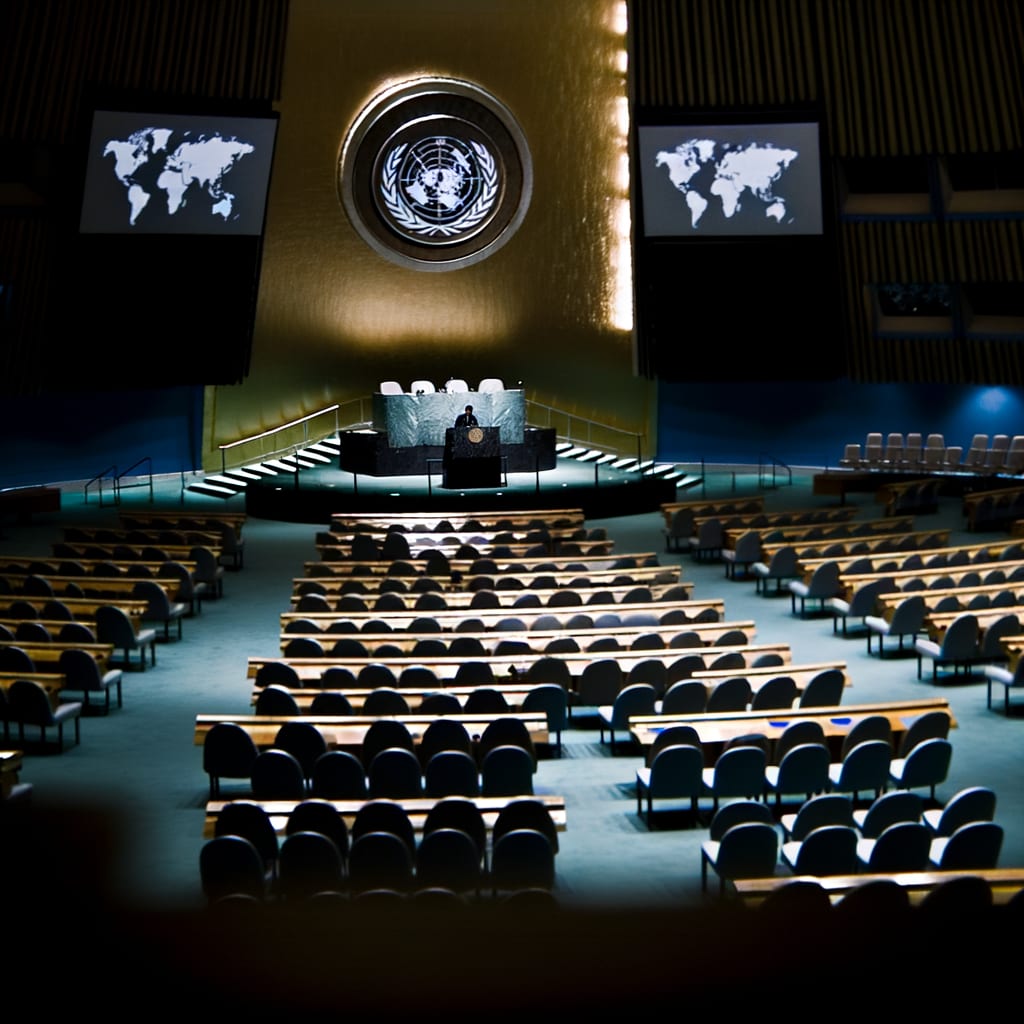Trump's UN Speech Stirs Controversy Over Immigration, Climate Policies
In a controversial address at the United Nations General Assembly on Tuesday, US President Donald Trump berated Western European countries over their immigration, energy, and climate policies. The President warned that uncontrolled migration and suicidal energy ideas
could lead to the death of Western Europe,
and called for immediate action to reverse course. He also accused the UN of aiding uncontrolled migration and funding an assault
against Western countries.
Background and Context
President Trump's remarks at the UN, his first in his second term, have stirred up a storm of controversy. He accused the UN of spending $372 million in 2024 on supporting an estimated 624,000 people migrating to the US, calling it a UN-funded assault
on Western countries. Trump further criticized European countries for destroying their heritage
by allowing migration, arguing that migration is the number one political issue of our time.
Key Points and Developments
During his almost hour-long speech, Trump took aim at the UN itself, describing it as a feckless, corrupt, and pernicious global force
that should be replaced by his own leadership. He further attacked the global body for its role in world migration, accusing it of leading a globalist migration agenda.
The President also criticized Western European nations over their climate policies, dismissing global warming as a con job
and calling European policies on clean energy suicidal.
He accused the countries of going to hell,
destroying their own heritage, and ruining their countries.
The President's remarks were met with criticism, with some media sources pointing out inaccuracies in his claims about the economy, renewable energy, and migration. Other sources highlighted that the President's criticisms seemed more targeted at his domestic audience, with his digs at Europe considered red meat for his base.
Implications and Reactions
Trump's comments have sparked a wide range of reactions both domestically and internationally. Critics have raised concerns about resources and cultural assimilation, with the President comparing the situation in Europe to the US's own border crisis. Some European leaders have pushed back against Trump's assertions, arguing that their policies are not destroying
their countries.
The President's dismissal of climate change also drew sharp criticism, given the global consensus on the urgent need to address the issue. His comments were contrasted with those of other leaders who spoke at the UN General Assembly, many of whom emphasized the importance of international cooperation in tackling climate change and migration.
Conclusion
Trump's UN speech, characterized by aggressive criticisms of Western European countries and the UN, has stirred controversy and drawn sharp responses. The President's comments on immigration and climate change, in particular, have highlighted the stark divide between his administration's policies and the general global consensus. As the fallout from his remarks continues, the focus is on how these differences will impact international relations and global efforts to address critical issues.

